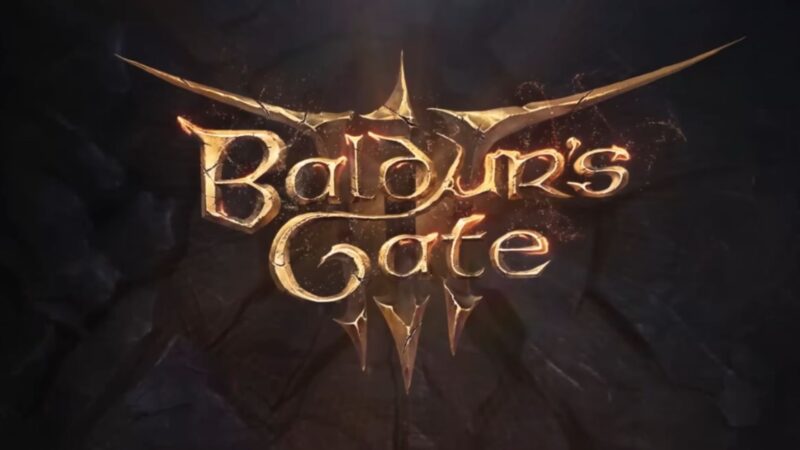In Baldur’s Gate 3, various classes and subclasses can use a selection of cantrips and spells; some of them require concentration or spell slots. Here is how spellcasting works!

Spells and cantrips are indispensable tools for spellcasters in Baldur’s Gate 3, serving as a continuous source of magical abilities throughout their adventurous journeys. In this guide, we’ll explain what are cantrips, spells, concentration, and spell slots, as well as all mechanics that are related to spellcasting in Baldur’s Gate 3. We will also list and discuss all classes that can cast spells in Baldur’s Gate 3.
What are the Spells in Baldur’s Gate 3?
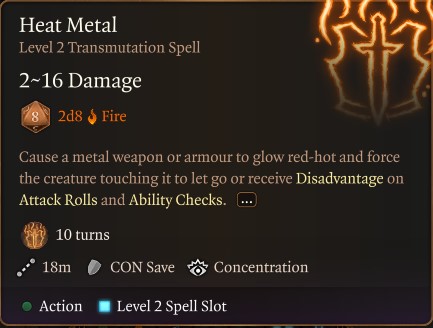
In Baldur’s Gate 3, magic takes shape through spells that harness mystical energies. Specific Classes wield these spells to deal damage to enemies, support, or heal their team. You can also use spells outside of combat to achieve various effects. Lift objects, produce light to light up dark places, and much more. Wizards and Clerics possess distinct spell sets, whereas characters of other classes can access spells through the use of Scrolls.
Spells use spell slots to cast, as you progress you’ll receive, more, higher-level spell slots before you’ll need to take a long rest.
Related:
What Are Spell Slots?
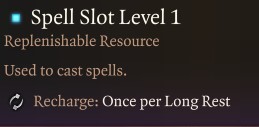
Spell slots are defined by class and subclass currency of some sort, that you can spend on any spell. When you spend all your spell slots you can take a long rest to replenish your spell slots (currency). As a result, you’ll be able to cast spells again, until you run out of slots again. As mentioned before cantrips don’t require spell slots to cast.
What are the Cantrips in Baldur’s Gate 3?
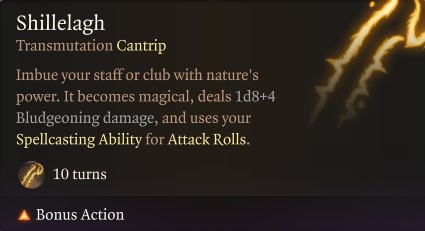
Cantrips represent a type of spell that spellcasters can cast infinitely without spending any spell slots. They are basic and low-level, enabling cantrip-casters to repeatedly use them, making them a valuable resource in both combat and outside of it.
Once spellcasters reach the appropriate level, cantrips become permanently available, becoming an essential component of their arsenal, especially during the early levels when spell slots are limited. While they may not deal as much damage or possess effects as significant as higher-level spells, cantrips offer a reliable and sustainable means of spellcasting.
As casters progress in level, they may gain access to more potent cantrips or unlock additional effects for the ones they already have, increasing their versatility and usefulness in various situations. During character creation, players have the freedom to select their cantrips, choosing those that align with their preferred playstyle and tactics.
How to Cast Spells and Cantrips

To cast your available Cantrips in Baldur’s Gate 3, click on the icon located at the far right of your User Interface—a small blue square. This action will display all the cantrips at your disposal. Once you’ve chosen a specific cantrip, proceed to select a target, ground, or an ally, depending on the cantrip’s conditions. Ensure you pay attention to the white outline or bubble, as it indicates the range or area effect of the selected cantrips.
Click one of the blue squares with a number to cast the corresponding spell of the respective spell level, whether it’s level I, level II, or level III, and so on. This action will display all the available spells of that specific level. Additionally, you can track the remaining spell slots by observing the grey and lightened-up blue squares on the spell buttons.
Also Check:- BG3 Interactive Map
Spellcasting Mechanics in Baldur’s Gate 3
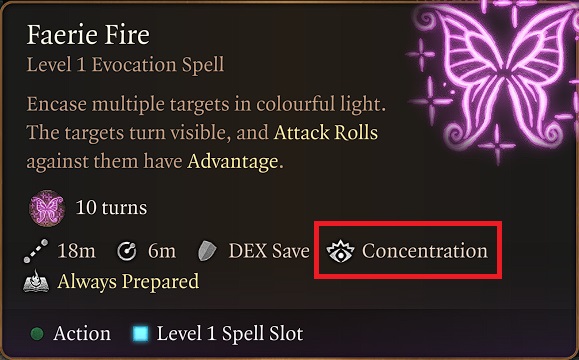
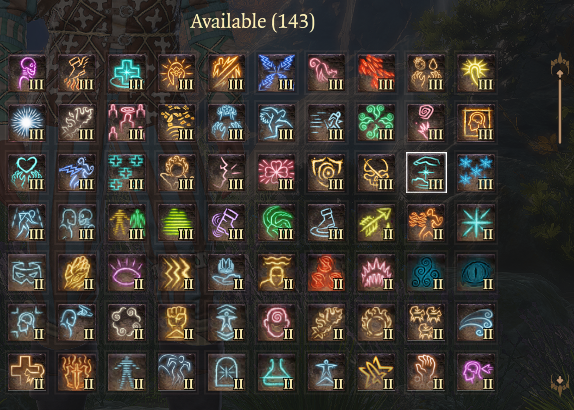
Below is a list of important spell-casting mechanics in Baldur’s Gate 3:
- Cantrips: are like spells, but you can cast them infinitely, and they don’t require spell slots.
- Spell Slots: these are the limited resource for casting spells that can be replenished on long rest.
- Spell Levels: this refers to the potency and level of the spell, in BG3 they will go up to level 5.
- Prepared Spells: allow you to swap in and out spells in between combat.
- Concentration: is a spell mechanic in Baldur’s Gate 3. Some Spells require concentration to maintain and keep their magic active. Concentration can be broken if you attack the character who is concentrating on a spell and they will fail to pass a constitution check.
- Replacement Spells: Upon leveling up, you can learn and unlearn spells if you made a mistake in spell selection.
In addition to these spell mechanics, certain classes and subclasses have unique features that will influence spell casting. For instance, a Sorcerer with Metamagic can change the duration, range, and multi-cast a spell, while the Wizard can learn spells from scrolls. Check our build section here for more information on each class.
Related:
How Do Spells Influence the Dice Checks?
Dice rolls influence your actions, whether in combat or during dialogue. To enhance your chances of successfully passing a dice roll check, you can manually add your or your Companions’ Spells or cantrips to your throw. However, casting the spell can consume one of your Spell Slots, so ensure you have them available or can take a rest to replenish them. If available, can use some cantrip instead. The bonus will be added to your existing ones, and the total will be combined with your roll.
For instance, you can cast Guadiance cantrip to gain the bonus to all ability checks for 10 turns or a short time outside of combat. This will significantly increase your chances of success without spending your spell slots. Alternatively, Enhance Ability is also an effective Spell.
How to Prepare Spells and Cantrips?
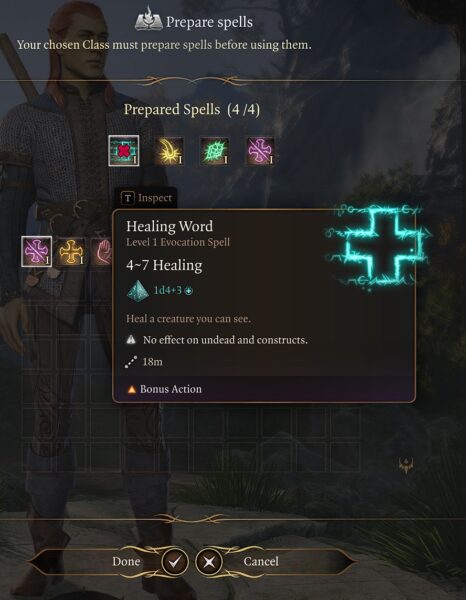
You can learn new Spells usually when you level up. Each time you gain access to more powerful effects and you also must prepare them. Preparing spells means, you’ll need to select a specific number of spells from all the spells your character knows, and those prepared spells will be available for your character in combat and outside of it. You can pick new spells or replace the existing ones, as you desire and what fits your build.
Depending on class and subclass you’ll learn different spells and you’ll have a defined number of spells that you can prepare. Certain classes possess knowledge of more spells than they can prepare at once. For example, Wizards might have access to many spells but can only prepare six of them. To switch prepared spells, access the Spellbook by pressing K outside of combat and choose the spells you want to have ready. Wizards also can learn spells from scrolls.
Spell Scrolls
Spell Scrolls are single-use consumable items that allow your characters cast a spell or cantrip once, and upon casting the scroll is destroyed. You can find them anywhere in the world and cast regardless of your class or subclass.
Who Can Cast Spells in Baldur’s Gate 3?
Here are all classes in Baldur’s Gate 3 that can cast spells or cantrips:
- Bard: have a versatile spell and cantrip list and can also inspire and support their allies in various ways.
- Cleric: They have a wide variety of spells and cantrips at their disposal, including healing, buffs, debuffs, and damage spells.
- Druid: They have a variety of spells and cantrips that can be used to control the environment, heal allies, and deal damage to enemies.
- Paladin: gain access to spells and cantrips that enhance their combat abilities like divine smite, healing, and support.
- Ranger: typically has spells and cantrips that are related to nature, travel, and combat.
- Sorcerer: have a limited number of spells known, but they can cast them more often than other classes.
- Warlock: typically has spells and cantrips that are related to darkness, deception, and summoning.
- Wizard: have a wide variety of spells and cantrips at their disposal, but they must prepare their spells in advance.
In addition to these classes, there are also a few other subclasses in Baldur’s Gate 3 that can cast spells, such as Eldritch Knight Fighter and Arcane Trickster Rogue. You can also use scrolls to cast spells without using a spell slot or having knowledge of that spell.
Looking For More About Baldur’s Gate 3?
Thank you for reading Baldur’s Gate 3: Spells, Cantrips & Spellcasting Explained Guide. We provide the latest news and create guides for Baldur’s Gate 3. Also, watch me play games on Twitch or visit my YouTube channel!
 Reddit
Reddit
 Email
Email
